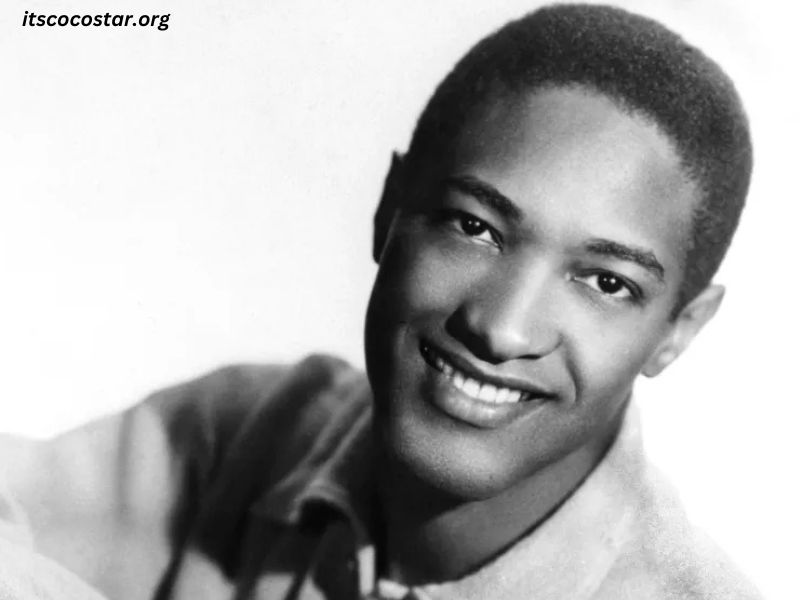Sam Cooke, often referred to as the “King of Soul,” was a pioneering figure in American music who bridged genres and brought soul music to mainstream audiences. Cooke’s ability to connect with people, particularly Black audiences, transcended music—it was a powerful expression of identity, hope, and activism during a time of profound social upheaval.
This article delves into Sam Cooke’s electrifying performances in front of Black audiences, exploring his significance as a cultural icon, his influence on the Civil Rights Movement, and the timeless power of his music.
The Rise of Sam Cooke
Born on January 22, 1931, in Clarksdale, Mississippi, and raised in Chicago, Illinois, Samuel Cook (he added the “e” to his surname later) had music in his blood. His father, a Baptist minister, exposed him to gospel music early on, a foundation that would shape his career. Cooke first gained recognition as the lead singer of the gospel group The Soul Stirrers. His velvety voice, spiritual depth, and charisma set him apart from other gospel artists.
However, Cooke’s aspirations extended beyond gospel music. He envisioned a career that would allow him to reach broader audiences while maintaining his roots. This bold move, considered controversial at the time, marked the beginning of a transformative era in American music.
Connecting with Black Audiences
Sam Cooke’s relationship with Black audiences was deeply rooted in shared experiences and cultural pride. His performances in predominantly Black venues like the Apollo Theater in Harlem and the Regal Theater in Chicago became legendary. These performances were more than just concerts—they were communal celebrations of resilience and joy.
- The Apollo Theater: A Homecoming for Soul Music
The Apollo Theater was synonymous with Black excellence in the arts, and for Cooke, performing there was akin to returning home. His performances captivated audiences with their emotional depth, blending gospel fervor with the sensuality of soul and rhythm and blues. At the Apollo, Cooke wasn’t just a singer; he was a preacher, a storyteller, and a voice for the people. - The Regal Theater: A Chicago Landmark
In Chicago, the Regal Theater served as a cultural hub for the Black community. Cooke’s performances there were electrifying, showcasing his ability to command the stage and connect with every member of the audience. These shows reflected Cooke’s understanding of his audience’s struggles and triumphs, particularly in the segregated America of the 1950s and 1960s.
The Role of Gospel in His Music
Cooke’s gospel background resonated deeply with Black audiences. Even as he transitioned to secular music, the soul of gospel remained central to his artistry. Songs like Touch the Hem of His Garment and Jesus Gave Me Water reminded audiences of his roots, while hits like You Send Me bridged the sacred and the secular.
In live performances, Cooke often blended his gospel repertoire with his pop hits, creating an atmosphere that was both reverent and jubilant. His ability to evoke both spiritual transcendence and earthly celebration made him a unique figure in music, one who could speak to the complexities of the Black experience.
Civil Rights and Cultural Representation
As the Civil Rights Movement gained momentum, Cooke’s music began to reflect the changing times. His performances in front of Black audiences took on new significance as they became spaces for solidarity and empowerment.
- “A Change Is Gonna Come”
Perhaps Cooke’s most enduring contribution to the Civil Rights Movement is his anthem A Change Is Gonna Come. Released in 1964, the song was inspired by Cooke’s experiences with racism and the broader struggle for equality. When performed live, particularly in front of Black audiences, it became a rallying cry, offering hope and a vision of a better future. - The Power of Representation
Cooke’s success as a Black artist in a predominantly white industry was itself a form of activism. He broke barriers, becoming one of the first African American artists to own his own record label (SAR Records) and control his publishing rights. For Black audiences, Cooke’s achievements were a source of pride and inspiration, demonstrating that success was possible despite systemic oppression.
The Magic of Live Performances
Cooke’s live performances were unparalleled, marked by his impeccable voice, magnetic stage presence, and ability to connect emotionally with his audience. In Black venues, his shows felt intimate and personal, as though he were singing directly to each individual.
- Call-and-Response Dynamics
Cooke often incorporated call-and-response, a hallmark of African American musical traditions, into his performances. This interaction created a sense of community, turning the audience into active participants rather than passive listeners. - Showmanship and Style
Dressed in sharp suits and exuding charm, Cooke embodied sophistication and class. His style was aspirational for many in his audience, symbolizing Black excellence at a time when such representation was rare. - Setlists That Spoke to the Heart
Cooke’s setlists were carefully curated to take audiences on an emotional journey. From the uplifting energy of Twistin’ the Night Away to the soulful longing of Bring It on Home to Me, his performances were a masterclass in storytelling through music.
Challenges and Triumphs
Despite his immense talent and popularity, Cooke faced significant challenges as a Black artist. Segregation and racism were ever-present obstacles, limiting his access to certain venues and audiences. Yet, Cooke persevered, using his platform to challenge these barriers.
One notable example was his 1963 tour, during which he performed at integrated venues in the South. These shows were acts of defiance and courage, illustrating Cooke’s commitment to both his art and the fight for equality.
Legacy and Influence
Sam Cooke’s impact on Black audiences and the broader music industry cannot be overstated. He paved the way for future generations of artists, from Otis Redding to Aretha Franklin, and his music continues to inspire.
For Black audiences, Cooke was more than a musician—he was a symbol of hope, resilience, and the possibility of change. His performances were spaces where people could come together, celebrate their culture, and find strength in the face of adversity.
Conclusion
Sam Cooke’s performances in front of Black audiences were transformative experiences that went beyond entertainment. They were acts of communion, resistance, and celebration, embodying the spirit of a people striving for dignity and equality.
As we reflect on his life and legacy, it is clear that Sam Cooke’s music remains as relevant today as it was in his time. Whether through the soaring notes of A Change Is Gonna Come or the joyous rhythms of Twistin’ the Night Away, Cooke’s voice continues to resonate, reminding us of the enduring power of music to uplift, unite, and inspire.







